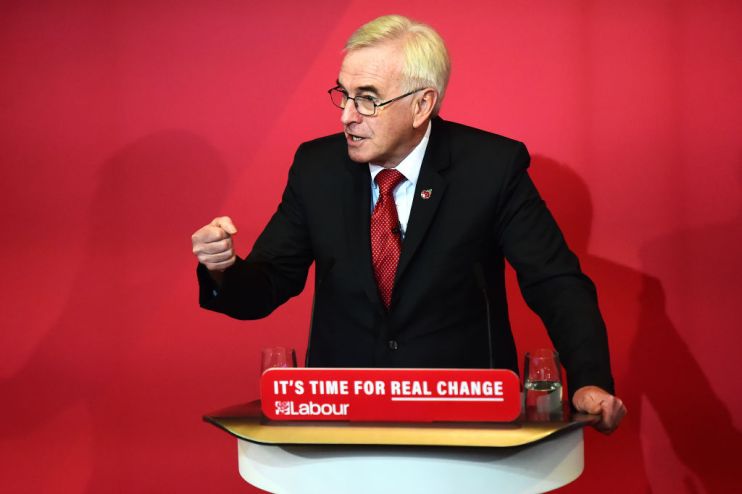Q&A: How would Labour’s plan to delist companies work?

John McDonnell shocked the City once again yesterday after unveiling his latest plans to shake up the world of finance.
The shadow chancellor, who revealed plans for “rewriting the rules” of business, said that firms which failed to take “adequate steps” to deal with climate change would be delisted from the London Stock Exchange.
But how would such plans work? And how would they affect the City?
Read more: HSBC investment banking boss to lose role in shake-up
James Roe, an equity capital markets partner at Allen & Overy, answers these questions.
How would it work?
“Presumably you would have to amend or introduce new legislation which would direct the FCA to delist companies if the companies do not comply with climate change legislation.
However, you have to prescribe what you mean by climate change legislation and what you mean by non-compliance of those rules.
Presumably there would be a process allowing them (listed firms) to apply rather than delisting them.
Investors could continue to hold shares, but they would have a less liquid asset and therefore the value of that asset would presumably be impacted.
If a company ceases to be traded on liquid market, it is illiquid and therefore investors may not be able to exit their shareholding.
The company would also cease to have access to the market, which would impact on its relationship with investors and might have reputational consequences or impact its credit rating.
Read more: IoD: Governance overhaul needed to restore trust in business
Biggest impact?
The bigger impact is on the competitiveness of London as a listing venue.
In a post-brexit world, the UK is seeking to maintain credentials as a global financial centre. Corporates can choose where to list and this would be a counter productive measure.
It would impact the UK’s position as a global equities market and may have other consequences, such as causing companies to stay private and may cause companies to seek a listing elsewhere
Any likely route of legal recourse?
There is an appeal process about the FCA’s decision making, but assuming the FCA has made the decision in compliance with the rules, then they are what they are.”